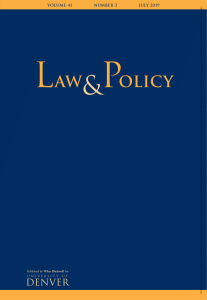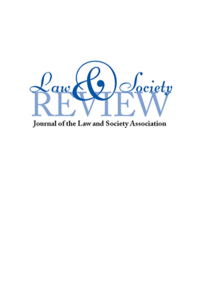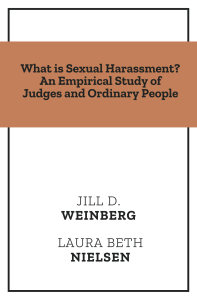Research on Contested Constructions of Discrimination was completed in 2020. This project produced a multitude of peer-reviewed articles and academic presentations.
Despite the volume of empirical research about employment civil rights litigation, we know very little about how people come to assess whether workplace experiences are thought to be “discrimination” or “personal disputes.” This project combines a quantitative analysis of judges’ and laypeople’s determinations about whether hypothetical workplace disputes rise to the level of discrimination with qualitative in-depth interviews of judges to probe this determination further. Drawing on the legal consciousness and judicial decision-making literatures, this research examines the effect of social status, workplace context, plaintiff characteristics, and dispute characteristics on the likelihood that a person determines that a workplace dispute constitutes discrimination. In addition to understanding the variation within members of the same group – for example, how judges vary in their assessment of these disputes – this design will allow us to compare how members of different groups think about discrimination. Research demonstrated that there is a variation in how discrimination is conceptualized as more or less like the legal definition.
This project employed a mixed-method research design that included a factorial survey of vignettes about workplace disputes distributed to the public, state and federal trial judges as well as in-depth interviews with 80 state and federal trial judges.





